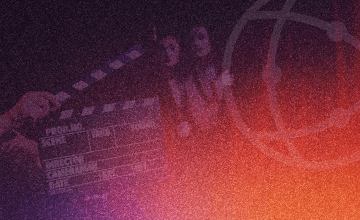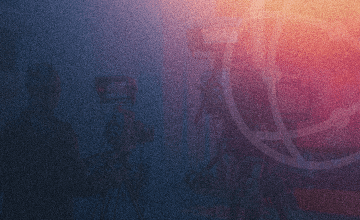Starting on Christmas Day, I plan to attend the sing-along screenings of “Wicked,” but not because I intend to sing along myself. (Although I might join in for Dr. Dillamond’s parts, as his unique vocal style is likely similar to what I could manage.) I am genuinely curious to see how a crowd of dedicated fans performs these intricate musical-theater songs filled with complex rhythms and unexpected transitions between major and minor keys. There will undoubtedly be trained singers and performers among the audience at AMC who can keep pace with the music. For the rest of us, there may come a realization: I’m not that girl, and likely, neither are you.
So what other reason is there to look forward to the official multiplex sing-alongs, aside from singing? The answer is simple: the **subtitles**.
The songs in “Wicked” are exceptional—some of the finest in musical theater, in my opinion. The sing-along format allows for a greater focus on the artistry of the songs without being distracted by the film’s visual elements. As a long-time fan of “Wicked,” my only criticism of the film adaptation is that director John Chu and editor Myron Kerstein sometimes divert our attention from what I want most: close-ups of Ariana Grande and Cynthia Erivo delivering iconic lyrics for two and a half hours. This isn’t a significant complaint since it is a movie musical, but I look forward to seeing all the lyrics displayed on screens when it premieres on December 25. For a dedicated group of “Wicked” fans, the true star is Stephen Schwartz, not just Erivo or Grande.
Of course, there’s a way to enjoy the experience I’m anticipating without waiting for Christmas: by streaming or purchasing “Wicked: The Soundtrack” and following along with the lyrics on a site like Genius.com. Even if you think you have grasped the lyrics through the theatrical experience, there is a wealth of richness and nuance that can be easily overlooked amidst the film’s dazzling visuals. The album highlights Schwartz’s remarkable talent as both a composer and lyricist, reminiscent of Sondheim. It’s not sacrilege to say that Schwartz embodies a populist version of Sondheim in his work on “Wicked.” The entire score is dark, intricate, and subversive, and even if some parts might seem overly simplistic, it underscores the magnitude of the achievement.
The first point to note about the soundtrack is that it has not been mishandled. One can easily imagine how a score like this could have been poorly modernized. (Raise your hand if you thought the Ozdust Ball might have incorporated an EDM beat for a while—it does not.) With Schwartz co-producing alongside Greg Wells (“Greatest Showman”) and original music director Stephen Oremus, the soundtrack sounds like a legitimate version that could feature a larger orchestra. For young audiences of aspiring theater enthusiasts, this will introduce them to the sound and form of traditional Broadway, even with themes that might resonate with contemporary pop culture like Taylor Swift.
Ariana Grande and Cynthia Erivo follow the vocal templates set by Kristen Chenoweth and Idina Menzel two decades ago. Yet, their performances still bring unexpected nuances. The powerful opening number, “No One Mourns the Wicked,” showcases Grande’s vocal range, hinting at the comedic and tragic elements she will tackle throughout the score. I was aware of her ability to deliver high-pitched humor (I watched “Sam & Cat”), but hearing her perform the ironically phrased “Good news” with full operatic strength instantly indicates she’s ready to tackle the diverse range of emotions to come.
Erivo takes a more measured approach, intentionally holding back until the midway point of “Defying Gravity,” where her full vocal power is unleashed. Although the film provides her with “The Wizard and I” as an early standout, she conserves a bit of her strength for the climactic moment of awakening. The brilliance of these two songs lies in their relationship: “The Wizard and I” serves as a classic “I want” song, while “Gravity” transcends it as a song of resistance. Those producing her vocals have made a wise choice to maintain some restraint, anticipating the powerful defiance embodied in this iconic number.
As we await that moment, Erivo’s earlier numbers charm with conversational and innocent vocal tones, establishing her character as a lovable naive before she transforms into a fiercely righteous figure. After reaffirming “Defying Gravity” as a timeless masterpiece which Erivo executes flawlessly, I can’t help but admit that I have a slightly greater affection for her delicate performance of “I’m Not That Girl.”
Here’s a case for “I’m Not That Girl” as the sleeper hit of “Wicked,” likely to never achieve the same level of fame as more popular numbers but capable of profoundly affecting those who hear it at the right, melancholic moment. Its placement in the first act, or mid-movie, might render it a simple interlude for some, seemingly unimportant for plot progression. By Schwartz’s standards, it is straightforward and unambitious, being the only song devoid of key changes or narrative details. Yet, its simplicity is its strength. You don’t have to be a Swiftie to resonate with the poignant lines like “Don’t wish, don’t start / Wishing only wounds the heart.” In this ballad, Erivo embodies the essence of “That Girl.”
Several other songs deserve recognition. Jonathan Bailey skillfully navigates the surface of “Dancing Through Life,” which, contrary to expectations, positions Fiyero as a seemingly shallow hunk-villain before revealing his deeper humanity. Lines like “Life’s more painless for the brainless” serve as clever foreshadowing for his fate while showcasing Schwartz’s witty nihilism. The revolving library sets during this number exemplify the production’s brilliance, but they also highlight the need to listen to the soundtrack independently to appreciate the full depth of the lyrics.
“What Is This Feeling?” offers two key elements: it’s a patter song (or as close to one as “Wicked” gets) and it showcases the harmonious dynamic between Grande and Erivo as adversaries, before their more intense duet in “Defying Gravity.” (Spoiler alert.) The original performers of that song, Menzel and Chenoweth, appear in newly penned verses by Schwartz for a cameo in “One Short Day.” His new compositions will feature in Part 2, but this additional segment here hints at exciting musical developments to come.
“Popular” contains a reference to Ronald Reagan that many might overlook now, 20 years since the show’s debut. Galinda’s mention of “Great Communicators” as being more influential than intelligent is a subtle political commentary embedded within this light-hearted number, a joke that felt dated even upon its release, while audiences focus on Ariana Grande’s dazzling performance in pink.
However, the opening and closing numbers of Part 1 of “Wicked” carry significant political weight, functioning almost as protest songs. “Defying Gravity” serves as an anthem of activism, as Glinda and Elphaba grapple with their differences across the complacency/risk divide. It remains profoundly moving—a song for anyone who has faced the decision to take the metaphorical red pill and confront the consequences or to admire those who have.
The song that resonates most with me is the seemingly innocuous “No One Mourns the Wicked.” Initially, it appears to be a standard scene-setter, but with repeated listens, it reveals its devastating layers. Schwartz and his collaborators depict an Oz filled with an angry and misguided mob, led by a woman complicit in a grand deception, all while attempting to rebuild a land marred by genocide and corruption. This is far from light-hearted holiday entertainment, especially in the context of contemporary America.
In “No One Mourns the Wicked,” the score reaches its most haunting moments, with a seemingly endless chorus calling for vengeance as Grande delivers piercing high notes, feigning approval of the national tragedy unfolding. If this doesn’t send chills down your spine, you may not be truly listening. But who is, at the start of a film, as coats and popcorn are still being shuffled and the story is just beginning to unfold?
This is yet another reason why “Wicked: The Soundtrack” is a vital listen after watching the movie; it allows one to appreciate the groundwork Schwartz and his team have laid, revealing that this is as much a sociopolitical tragedy as it is a fantasy musical-comedy. The ability to weave these elements together so masterfully is what elevates “Wicked” to being not just the greatest song score of our time (or at least tied with “Hamilton”) but one of the all-time greats.
And if you prefer to skip the darker themes and simply replay “Popular” endlessly until you’ve exhausted the streaming options, that’s perfectly acceptable too. We’ve all been there. Thanks to how well Erivo and Grande present this material, we can enjoy the theme of female friendship triumphing over all for a while longer. See you at the sing-along.
Person
Ariana Grande, Cynthia Erivo, John Chu, Myron Kerstein, Stephen Schwartz, Greg Wells, Kristen Chenoweth, Idina Menzel, Jonathan Bailey
Company Names
Genius.com
Titles
Wicked, Wicked: The Soundtrack, The Greatest Showman
Disclaimer: This article has been auto-generated from a syndicated RSS feed and has not been edited by Vitrina staff. It is provided solely for informational purposes on a non-commercial basis.









